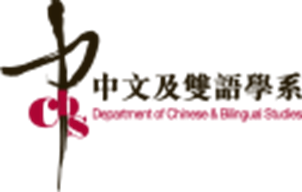CBS Online Seminar: New Challenges for T&I Training in the Age of AI: with reference to C/E translation in the Chinese cultural context
Seminar
-
Date
21 Nov 2022
-
Organiser
Department of Chinese and Bilingual Studies
-
Time
14:00 - 15:30
-
Venue
Online via Zoom
Summary
Title: New Challenges for T&I Training in the Age of AI: with reference to C/E translation in the Chinese cultural context
Date: November 21, 2022
Time: 14:00 - 15:30
Abstract
The goal of T&I training is not to train students to produce mechanically translated texts in the target language like a machine, but to develop abilities of understanding and writing in a creative manner that goes far beyond what present-day MT technologies can offer. MT these days can translate much faster with increasingly improved accuracy and text quality, yet it cannot replace the human translator, who is expected to have in-depth understanding of the textual and contextual information, awareness of the linguistic/cultural differences and the creative abilities for writing that are required for the production of high-quality texts in the target language and ultimately for effective human communication.
In this talk, I shall examine some of the differences that exist between texts produced by MI and those by the human translator and explore the causes in an effort to inform T&I training of the new challenges we face in the age of AI, explicating the different strategies and processes involved in the process of translation by MT and by the human translator.
About the Speaker
Prof. Wang Lidi is Head of Division of Translation Studies and Associate Dean of the School of Humanities and Social Science, The Chinese University of Hong Kong, Shenzhen (2015 - present). He was formerly Dean of Graduate School of Translation and Interpretation, Beijing Foreign Studies University (2001-2015) and was member of the National Steering Committee for MTI Education (2012-2016). He is executive member of Translators Association of China (TAC) and served as an advisor to the China Accreditation Tests for Translators and Interpreters (CATTI) and representative of member institutes of CIUTI. His research interests cover: T&I studies; T&I training and assessment, Chinese cultural and linguistic studies. He has been a long-time translator, interpreter and trainer himself and has published on Chinese linguistics, cognitive studies of translation and interpretation, translator training and assessment. He can be reached at wanglidi@cuhk.edu.cn





